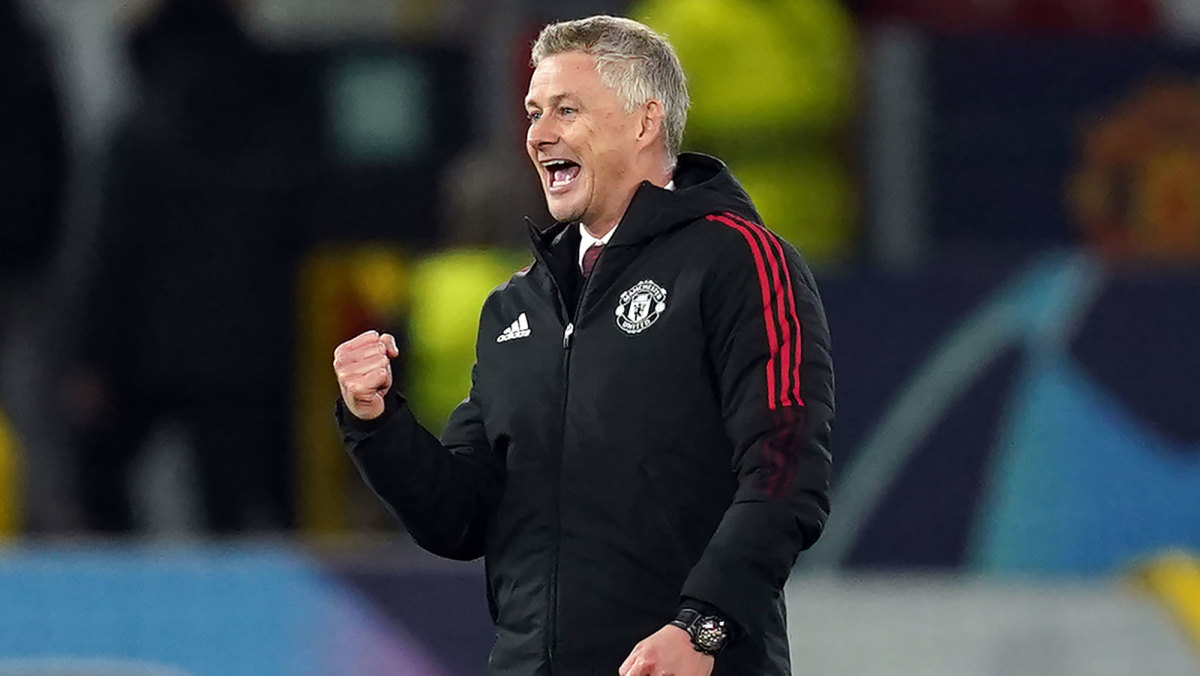Hallmarks of Man United's Faults Remain, but Comeback Steadies Solskjaer's Wheel
There will be talk of another special night at Old Trafford, and perhaps it was. Manchester United is a club built on the romance of the comeback, and Wednesday's was another one, the stadium rocking as it came from 2–0 down to beat Atalanta 3–2, the winner coming off the head of Cristiano Ronaldo. There is still a big game coming up away to Atalanta in two weeks, but Man United now should feel more at ease about making it through to the last 16 of the UEFA Champions League.
But thrilling as this was, there was a clear sense of the second-half performance papering over the cracks, and a hellish fixture list occupies the schedule through the next international break. Pulsating comebacks from 2–0 down against an injury-ravaged side lying sixth in Italy are all very well but the bigger question is how United ended up 2–0 down in the first place. All the problems that have haunted it this season were there in the first half. Exhausting comebacks are no way to run a club in the long term.
After Saturday’s defeat to Leicester, Paul Pogba had called for changes in an interview many construed as an attack on under-fire manager Ole Gunnar Solskjaer. He got his changes: He was dropped, as were Nemanja Matić and Jadon Sancho as Marcus Rashford returned after injury and Solskjaer rejigged his midfield to include both Fred and Scott McTominay.
That Leicester defeat was the culmination of a run of seven games of dismal form. There had been a sense even before then that United had not been playing well this season, but it had largely been getting away with it. Those seven games, though, include just two wins—against Villarreal and West Ham, both secured with late goals after unconvincing performances, the West Ham victory secured only because Mark Noble missed a penalty in injury time.
The question about Solskjaer from the moment he got the job was whether he could organize a midfield to do anything other than sit deep and strike on the counter. Repeatedly, United has failed to break down notionally weaker teams because of a lack of coherence in building play. But that issue has been exacerbated by the arrival of Ronaldo, who barely presses at all. Again and again on Saturday, Leicester almost casually passed through the United forward line, allowing Boubakary Soumaré and Youri Tielemans to construct the play largely unchallenged.
The immediate tactical concern for United must have been that Atalanta plays a similar 3-4-1-2 to that used by Leicester on Saturday. Then, the movement of Jamie Vardy and Kelechi Iheanacho into the channels between the center backs and fullbacks was a major problem, while James Maddison, in the No. 10 position, got the better of Matić. Wednesday, as Man United operated with two holding midfielders, Mario Pašalić didn’t have quite the influence Maddison had, but the other problem from Saturday was clearly evident: The way opposing wingbacks repeatedly got into space in dangerous positions.
That is a basic issue of structure. Looking at this side, it’s very hard to see who should be picking them up. To say Rashford (or Sancho) and Mason Greenwood should be tracking is too simple. One of the reasons they get caught too high is that they are drawn into pressing in an unstructured way because of Ronaldo’s lack of pressing. Particularly with two holding midfielders, one of them could pull wide to help the fullback, but they don’t, because there is no organization. Rather, the two holding players were left isolated by the defensive shortcomings of the forward line. Sure enough, a quarter of an hour in, right wingback Davide Zappacosta got behind Luke Shaw and crossed low for Pašalić to score.
The other problem this season—and one that raises clear red flags about the work being done on the training pitch—is United’s vulnerability on set plays. Leicester scored twice on set plays on Saturday, taking United’s total conceded in that way to four. Merih Demiral took that tally to five with a powerful header from Teun Koopmeiners’s in-swinging corner.
This was better than a lot of recent United performances. It had chances—in part, perhaps, because Atalanta is so open, especially with a raft of defenders out—but for a long time failed to take them. But that is what happens when teams are on the slide, morale goes and with it goes confidence. Finally, seven minutes into the second half, a chance was converted, with Rashford taking a clever pass from Bruno Fernandes and scoring with a smart low finish. In the surge that followed Harry Maguire leveled with 15 minutes remaining, and then Ronaldo—who else?—got the winner.
The players are, seemingly, still fighting for Solskjaer, whatever Pogba’s words meant on Saturday, but there can be no sense that anything has been resolved. If it takes this much to beat Atalanta, what will it take to beat Liverpool on Sunday?
More Soccer Coverage:







